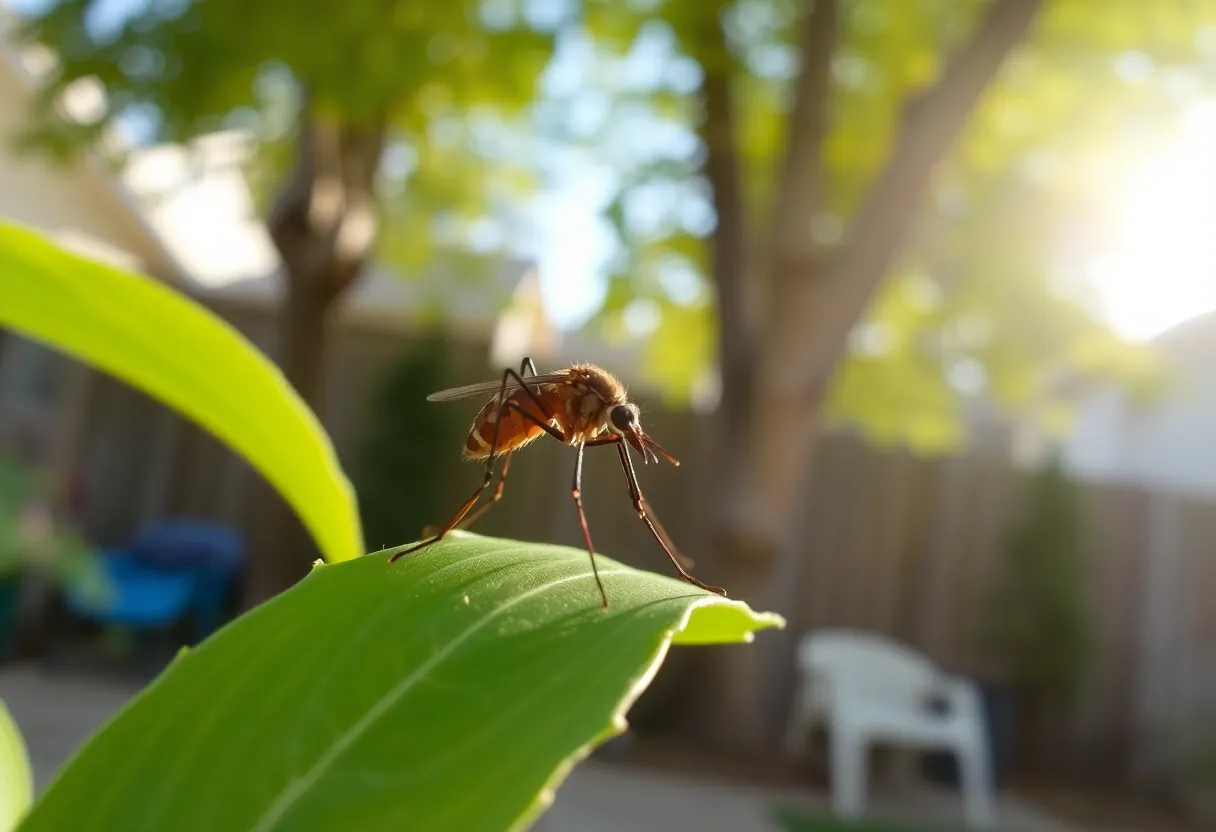News Summary
A sample of mosquitoes in Savannah has tested positive for West Nile Virus, leading to heightened prevention efforts by Chatham County Mosquito Control. Despite this, there have been no confirmed human cases this year. Experts emphasize the importance of protective measures to combat infections, especially as the summer months peak mosquito activity.
West Nile Virus Confirmed in Mosquitoes in Savannah, Prompting Increased Prevention Efforts
On July 7, a sample of mosquitoes in Savannah tested positive for West Nile Virus (WNV), prompting Chatham County Mosquito Control to increase prevention measures. The positive test was reported on Monday, raising awareness among residents about the virus’s potential impact on health.
West Nile Virus is primarily transmitted to humans through the bites of infected mosquitoes. These mosquitoes become carriers after feeding on infected birds. Although Dr. Taras Nebeluk notes that about 80% of individuals who contract WNV may not exhibit any symptoms, approximately 20% may experience mild symptoms such as fever, body rash, and joint aches. Serious complications, which can affect roughly 1 in 125 to 150 people, can lead to conditions such as meningitis and encephalitis. Older adults, particularly those over 50, are especially vulnerable to severe outcomes from the virus.
Despite the positive mosquito tests, there have been no confirmed human cases of WNV in Savannah this year, as reported by Will Peebles, Chatham Public Information Officer. In response to the positive readings, officials are enhancing mosquito trapping operations and applying pesticide treatments in targeted areas to mitigate the risk.
Seasonal Context
Detection of West Nile Virus in Savannah during the summer months is not unusual. Over the past eight years, testing has shown positive cases around early July, with the first positive result last year occurring on June 10, indicating an earlier detection timeline than this year.
The South Carolina Department of Public Health uses a methodical surveillance system to monitor mosquito populations, dead birds, and animals. If the surveillance detects any positive findings, local officials are notified to take appropriate action.
Health Management and Prevention Measures
Currently, there is no vaccine or specific treatment for West Nile Virus; management primarily focuses on supportive care, including hydration and pain management. The virus does not spread through person-to-person contact; rather, it is transmitted through mosquitoes that have fed on infected birds.
For individuals who develop severe symptoms, potential long-term effects may arise, such as post-viral fatigue similar to that experienced after illnesses like flu or COVID-19. As a precautionary measure, health experts recommend limiting outdoor activities during dusk and dawn when mosquito activity peaks.
Protective Steps for Residents
To decrease the chances of mosquito bites, residents are advised to wear long sleeves and utilize mosquito repellent. Cleaning up stagnant water in yards and proper disposal of containers that collect water are essential actions to prevent mosquito breeding grounds. Chatham County Mosquito Control is taking steps to disrupt the mosquito life cycle and prevent the transmission of WNV.
Additionally, residence screens on windows and doors should be checked and repaired to keep mosquitoes out of homes. By following these recommendations, Savannah residents can better protect themselves from the potential risks associated with West Nile Virus.
Deeper Dive: News & Info About This Topic
HERE Resources
Additional Resources
- WJCL: Savannah West Nile Virus
- Wikipedia: West Nile Virus
- WSAV: Human Case of West Nile Virus Confirmed
- Google Search: West Nile Virus Preventive Measures
- WTOC: West Nile Virus Detected in Chatham County
- Encyclopedia Britannica: West Nile Virus

Author: STAFF HERE SAVANNAH WRITER
The represents the experienced team at HERESavannah.com, your go-to source for actionable local news and information in Savannah, Chatham County, and beyond. Specializing in "news you can use," we cover essential topics like product reviews for personal and business needs, local business directories, politics, real estate trends, neighborhood insights, and state news affecting the area—with deep expertise drawn from years of dedicated reporting and strong community input, including local press releases and business updates. We deliver top reporting on high-value events such as Savannah Music Festival, St. Patrick's Day Parade, and Savannah Jazz Festival. Our coverage extends to key organizations like the Savannah Area Chamber of Commerce and United Way of the Coastal Empire, plus leading businesses in aerospace, education, and logistics that power the local economy such as Gulfstream Aerospace, Savannah College of Art and Design, and Colonial Group. As part of the broader HERE network, including HEREAtlanta.com and HEREAugusta.com, we provide comprehensive, credible insights into Georgia's dynamic landscape.



